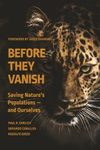"Our relationship with nature goes far beyond resources, amenity, or the scientific idea of an archive we learn to read. There are, as The Environment shows, ethical complexities in how we use and abuse the planet – and in how we frame its improbable riches."
– Nature
"Despite the importance in recent decades of environmentalism, environmental protection, environmental science, and so on, there has been strikingly little discussion of what exactly the environment is. Paul Warde, Libby Robin, and Sverker Sörlin examine the history of the concept as it has developed since the end of the Second World War, when they argue it took on its modern significance. The book is strongest in tracing the ways that changes in scientific institutions helped develop the modern idea of environment, as well as in its discussion of the ways that idea entered the popular imagination through works by Rachel Carson and others."
– Environmental History
"This engaging and accessible book should be required reading for anyone concerned with the development of 'the environment' as a conceptual lodestone of both science and politics in the mid- to late-twentieth century. Moreover, it will be richly rewarding for anyone wishing to teach, research, or simply better understand the path dependencies and political dynamics of environmental issues today."
– Local Environment
"Demonstrates the power of history to speak into the present. A wonderfully succinct, compelling, and revealing piece of writing."
– Australian Book Review
"This is a highly recommended book that agricultural and rural historians will appreciate the significance of in tracing the history of the environment. It will be of interest to a wide academic readership, including historians of the environment, ideas, politics, science and technology. More importantly, this book deserves to be read by the wider public as it explains how perceptions of the environment have evolved relative to the history of the twentieth century. Understanding this history can inform contemporary responses to present and future environmental issues."
– Agricultural History Review
"Impressive in the freshness of its argument, the depth of its coverage, and the seamlessness with which its authors, each a distinguished environmental historian, have managed to collaborate in its production. This book will appeal to anyone with a serious intellectual or practical interest in environmental issues. It is hard to imagine that anyone, no matter how extensive their familiarity with the subject, will not learn from this book."
– Harriet Ritvo, Massachusetts Institute of Technology, author of The Dawn of Green: Manchester, Thirlmere, and Modern Environmentalism
"The Environment is intellectual history of the highest order. Through careful research and extraordinarily wide source material, the authors deftly and expertly unravel the complex and fascinating genealogy of one of the most powerful and influential concepts of the modern era."
– Jane Carruthers, University of South Africa, author of National Park Science: A Century of Research in South Africa
"The team of Warde, Robin, and Srlin offer a compact, clear, and crisp intellectual history of the concept of the environment. Ranging across the Anglophone world and sometimes beyond, they bring insight and historical context to their analysis of the crucial thinkers, ideas, and debates in environmental science as it evolved since the 1940s."
– J. R. McNeill, Georgetown University, co-author of The Great Acceleration: An Environmental History of the Anthropocene since 1945
"What distinguishes this book's approach to intellectual history – in this case, the history of the idea of 'environment' – is the authors' meticulous and unwavering attention to histories of expertise, institutional power, and dominant imaginaries that influence the public career of an influential idea. A must read for those debating the environment today."
– Dipesh Chakrabarty, The University of Chicago
















![Die Vogel-WG: Die Heinroths, ihre 1000 Vögel und die Anfänge der Verhaltensforschung [The Bird Wohngemeinschaft: The Heinroths, Their 1000 Birds and the Beginnings of Behavioral Research]](http://mediacdn.nhbs.com/jackets/jackets_resizer_medium/26/267983.jpg?height=150&width=107)



















